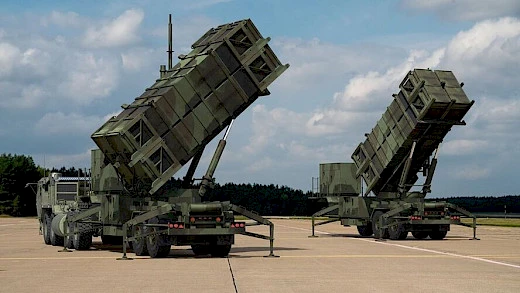Cyprus is arming itself: the purchase of Barak MX threatens to drag Israel into the conflict

The issue of Cyprus’s defense policy has once again come into focus — the Republic of Cyprus is considering the possibility of acquiring the Israeli Barak MX air defense system. Experts call this step a turning point that could radically change the strategic balance in the Eastern Mediterranean.
Historical context
The situation recalls the crisis of the late 1990s, when Nicosia intended to purchase Russian S-300 surface-to-air missile systems. At that time, the main goal was to strengthen defense capability and create a deterrent against Turkey’s air superiority. Ankara’s reaction was extremely harsh: the Turkish authorities declared that the appearance of the S-300 would be a reason for a direct strike. Under pressure from the US and the UK, Cyprus eventually abandoned the deployment of the systems on the island and transferred them to Crete.
Contemporary realities
Today, the matter concerns the purchase not of Russian but of Israeli Barak MX systems. This choice means that a new player — Israel — is being drawn into the traditional Greek-Turkish dispute. The Barak MX system is considered one of the most modern in the region: it can hit targets at different altitudes and ranges, providing comprehensive protection against missiles and aircraft.
Thus, this is not only about modernizing the armed forces of the Republic of Cyprus, but also about closer military cooperation between Nicosia and Tel Aviv. For Turkey, this is a signal of the expansion of its opponents’ alliances in the Eastern Mediterranean, which may cause further escalation.
Possible consequences
Political scientists note that the Barak MX deal effectively takes the Cyprus conflict beyond the framework of a bilateral confrontation. It is now a triangle: Cyprus — Turkey — Israel. In such conditions, even a local incident may lead to large-scale consequences.
Moreover, new acquisitions reinforce the process of militarization in the region, where tensions already persist over the Cyprus issue, energy resources, and maritime borders.
Experts urge consideration of the lessons of the past: the 1997 crisis was resolved only thanks to diplomatic pressure from outside. Today, however, the situation may prove even more complex, since at stake are not only Greek-Turkish relations but also strategic ties with Israel.
You may also be interested in:
- Foot-and-mouth disease case detected at farm in Livadia (Larnaca) — animals to be culled
- Parties and animal welfare groups accuse government of inaction on animal protection
- Early bird registration for Cyprus Gran Fondo 2026 ends in late February
- Ioanna Kekkou, the oldest enclaved Maronite in Kormakitis, has passed away
- Cyprus Guides Association calls for tourist police to combat illegal tour guides


